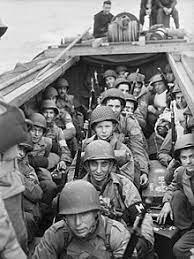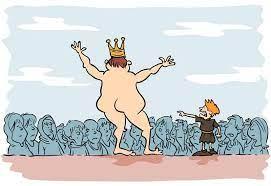
Craig Whitlock’s book, The Afghan Papers: A Secret History of the War, is a depressing litany of what went wrong — reading as if everything did. Is this a balanced picture? In any giant enterprise, involving human beings, horror stories will abound. Afghanistan had more than its share. And things did end badly. But is that the whole story? Did no American do anything right in Afghanistan?
The 2021 book is based on government documents, mainly reports of interviews with frontline personnel, in a “Lessons Learned” exercise. Echoing the Vietnam War’s Pentagon Papers. Despite the ostensible remit of subjecting the Afghan story to public accountability, the Washington Post had to battle for access to the documents.

Elucidated are two early, crucial, and very contradictory mistakes. First, at Tora Bora, we muffed a chance to get Bin Laden, and to deal the Taliban a death blow. Easier said than done? Monday morning quarterbacking? Actually, Whitlock details how that critical moment cried out for throwing in more assets, but higher-ups nixed it, in order to sustain the picture of a “light touch” military involvement. Thus setting the stage for one anything but light.
Our other, contradictory error: the Taliban expected to be treated as a vanquished foe, and might well have been open to negotiating peace on that basis. Instead they were treated as pariahs to be hunted down and exterminated. Excluded when we organized negotiations among numerous Afghan players, to set up a new political dispensation. This, failing the Taliban’s destruction, ensured prolonged conflict.

George W. Bush campaigned as an opponent of “nation building,” his own ironic terminology. “But we got there and realized we couldn’t walk away,” one U.S. official is quoted. Whitlock says no nation ever needed more building. His picture of Afghanistan’s dysfunction is pretty grim. And we ultimately spent more on it than on the post-WWII Marshall plan to rebuild Europe (adjusted for inflation).

Whitlock says the basic problem was lack of a coherent vision for how to remake Afghanistan, in light of its reality. We tried to build a strong central government, when the nation’s whole history was power dispersion. Few Afghans actually understood the concept of government, in terms we’d recognize. Whitlock cites a Monty Python film where the King on horseback, passing a peasant in the dirt, declares, “I’m the King!” The peasant looks up and says, “What’s a king?”
It didn’t help that the president we installed, Hamid Karzai, was a very flawed and problematic figure. He actually doesn’t come off too badly in the book. Whitlock seems to suggest we didn’t listen to him enough.
The U.S. war strategy appears to have been simply to kill Taliban. Or presumed Taliban — we never had a good handle on exactly who we were fighting. Anyhow, nor was it clear what this would actually achieve. The more we killed, the more Taliban popped up.
“No military solution” is a catch-phrase heard constantly, as though no problem ever does have a military solution. I think there sometimes are military solutions. But there seems a universal tendency to botch them. Certainly true in Iraq (disbanding its army was idiotic). Likewise in Afghanistan we made one big glaring misjudgment after another. For example, in 2009, President Obama announced sending 30,000 more troops — but only for 18 months. Practically telling the Taliban to just wait us out. And certainly our exit was botched.

When it comes to modern wars like in Afghanistan, there’s a fundamental problem. Our military is vastly sophisticated, and undoubtedly very good at fighting a conventional army like itself. As in WWII. But its fighting in a place like Afghanistan is like trying to put a round peg in a square hole. Our capabilities had no nexus to the actual mission challenge. We never got a grip on the nature of the fight we were in.
One chapter concerns the recurring U.S. effort to destroy Afghanistan’s opium farms. Actually the country’s biggest industry! Any fool should have seen how counterproductive this was, creating more enemies for us. For Whitlock it exemplifies that we just didn’t know what the heck we were doing. For me it also exemplifies the insanity of our whole “war on drugs” mentality, that fucks up everything everywhere.*
Meantime we flooded the country with billions splashed out on do-good schemes so ill-conceived that most of it was pissed away. What those billions really bought was a monster that swallowed Afghanistan, plunging this land without rule of law into a black hole of corruption. Destroying the legitimacy of the government we tried to prop up. While even helping to finance the Taliban.

Dishonesty is a pervasive theme of the book. Nobody ever wanted to say the emperor was naked. “Making progress” was the constant refrain as things went from bad to worse. But it wasn’t just misleading the public. You cannot grapple successfully with a complex situation absent a clear-eyed grasp of its parameters. That, in every aspect of our Afghan involvement, was lacking.
The whole sorry tale reinforces the old-time conservative skepticism of government doing anything right. Even with the best of intentions. Throwing money around without discipline. Even ultimate democratic accountability is too distant to matter. And the law of unintended consequences is very powerful.
Many voices now chide that we should have realized the whole Afghan effort was hopeless. That even if we had done everything right, Afghanistan’s culture was impervious to modernization. Which might actually have been said of many countries before they did modernize their cultures. No nation is born modern.

A recent global analysis by The Economist is relevant here.** Dividing the world between countries that are peaceful and prosperous, and those that aren’t. And what makes the difference? Female empowerment. Patriarchal cultures, where women are repressed, are poorer and violence-prone. Especially where men can have multiple wives; the rich and powerful hog women, leaving legions of men without, a huge source of societal instability. Thus countries with primitive male-female dynamics — like Afghanistan — are the world’s poorest and bloodiest. The road to progress runs through vaginas.
* Like in Colombia. Phil Klay’s novel, Missionaries depicts sickening violence involving police, army, paramilitaries, insurgents, and drug gangs. Drugs really the root cause of it all. More specifically, drugs’ illegality.
** I wrote about this subject myself, in 2018: https://rationaloptimist.wordpress.com/2018/08/17/the-polygamy-problem/.
